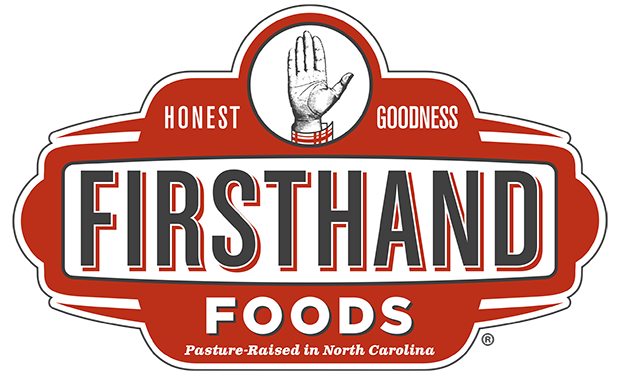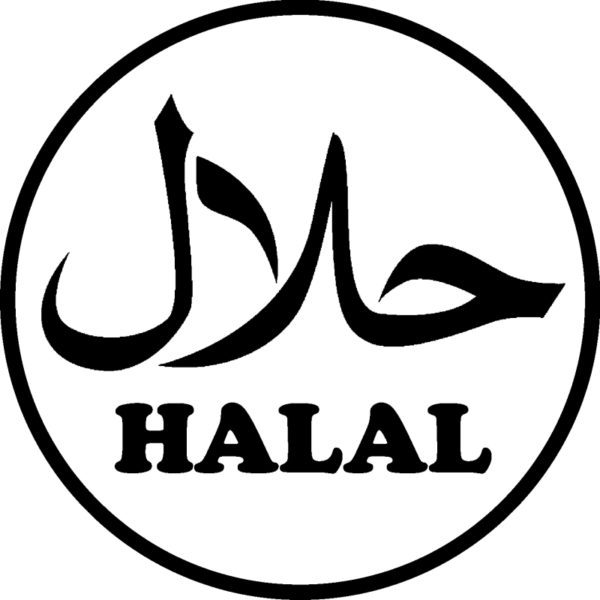Did you know that the Triangle is one of the only areas in the U.S. where you can get high quality halal meat in mainstream settings? Did you know that Firsthand Foods’ beef and lamb is halal? That’s because all of our beef and lamb (except for our lamb sausage) is fabricated for us at Chaudhry’s Halal Meats in Siler City, the only halal processing plant in North Carolina. But what does halal mean and what is its significance to the Muslim community? To answer these questions and gain some perspective, we sat down with Firsthand Foods’ customer Hussein El-Genk. Before sharing his thoughtful insights, we need to provide the basic definition of halal. This will involve discussing methods of slaughter, which we recognize may be a topic that some readers would rather avoid. If so, now is your chance to skip over this next paragraph or move on to another article.
To be halal, meat must come from animals slaughtered in accordance with Islamic ritual tradition. The baseline ritual requirements are simple: animals need to be given food and water while awaiting slaughter; they need to be killed with a sharp knife; they cannot be killed in front of other animals; and the slaughterer must whisper a prayer as each animal’s throat is cut. Chaudhry’s is a USDA-inspected, Animal Welfare Approved facility where beef cattle are first stunned and rendered unconscious with a captive bolt before a knife is used.
What does halal really mean? A thoughtful perspective from Firsthand Foods’ customer, Hussein El-Genk
What is the availability of halal meat like in the United States these days?
The Triangle is one of the rare areas in the U.S. where you can get high quality halal meat in a lot of mainstream settings. I lived in D.C. before moving here, and even in a city that big there were only a few retail spaces where you could find halal. It got to the point where I was even looking into opening a slaughterhouse myself! But then my family moved here, and we found out about Chaudhry’s. It changes everything. You can walk up to farmers at many farmers’ markets and simply ask them where their meat is processed. And if they say Chaudhry’s, boom – you can buy that meat.
Do you have a certain certification you trust, or do you choose your halal meat based on individual processors or brands?
In general, there are a couple of organizations that offer certifications, but there’s not one central, structured body. The onus is on consumers; it really comes down to knowing where your meat comes from. In this area, we’re familiar with Chaudhry’s. It’s a trustworthy name. And we know which restaurants and which distributors, like Firsthand Foods, get their meat processed through that plant.
To you, what are the key differences between meat that is halal and meat that isn’t?
Some people say halal is more ethical, some people say it’s less… the word literally just means “permissible.” You can follow the ritual more or less rigorously. What you see most often today is a hybrid model, where a captive bolt is used before an animal’s throat is cut.
I buy halal whenever possible, but I’m not strict about it. I care even more about buying meat that is ethically raised. Within the Muslim community, you increasingly see people looking for meat that is not only halal, but also tayyib, which means “good” or “pure.” If you want meat to be tayyib, then you care not just about how the animal was killed but also about how it was raised. Too often people care about just one or the other – the life of the animal, or the death. Thinking about both tayyib and halal forces you to keep both in mind.
Why is buying halal so important to you?
I think it’s an important part of our religious tradition. Staying mindful and invoking God’s name when killing an animal preserves the spirituality involved in nourishing ourselves by taking another being’s life. I’ve slaughtered animals myself four times, at the birth of each of my four children. I mentioned it to my neighbors, and they thought it was weird! But you know, the whole year after, every time I ate meat I felt so connected to it. A cow is not the same as a carrot, or as a bag of chips – it’s a living life. It’s important to have consciousness of that when eating. That’s why it’s hard for me to disconnect the idea of halal from the ethics surrounding animal welfare. If an animal had a terrible life and you mention God’s name before you kill it, there’s still a fundamental disconnect. The two need to go hand in hand.

